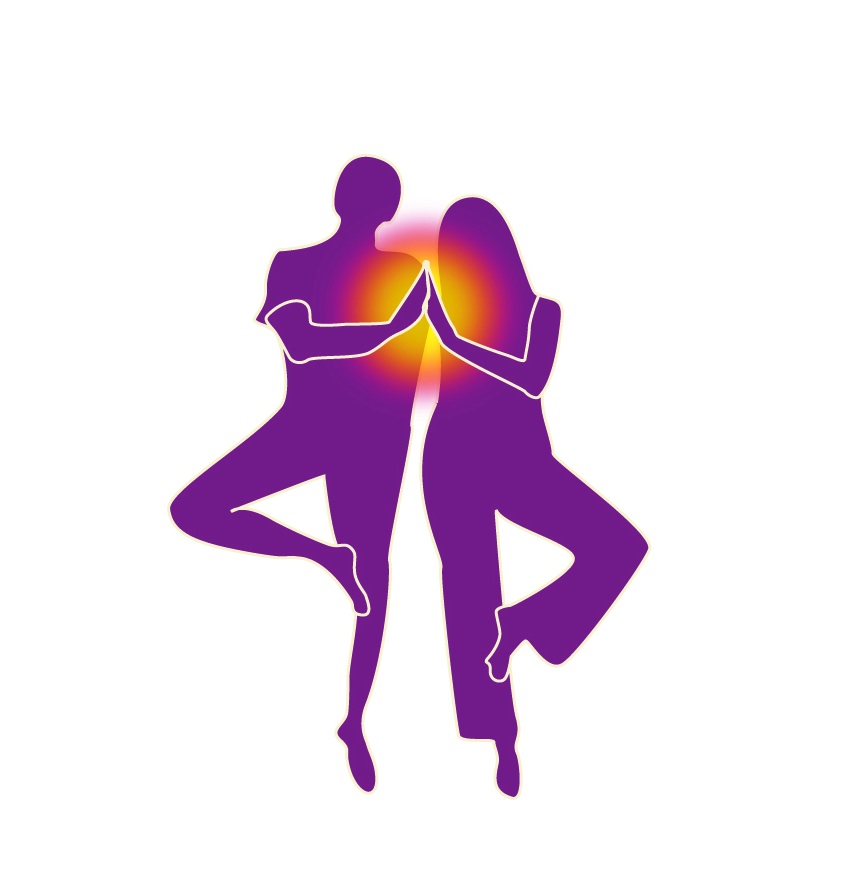Synergy By Jasmine teaches Beginner Gentle yoga, and Couples Yoga (great Date Night idea), classes in the Philadelphia area along with reviews of holistic health, wellness products and Romance stuff . Our classes are located in Manayunk and West Chester.
Here are some common yoga questions and answers…
Five Solid Benefits You Can Experience from Yoga
How to Choose a Yoga Retreat – 8 Things to Consider
How does Meditation make your mind simple?
Five Solid Benefits You Can Experience from Yoga
You hear so much about Yoga these days, and there are so many styles to choose from, that it is advisable to research a particular style which suits your needs. Some classes are gentle, restorative, athletic, cerebral, spiritual, meditative, or hot. Therefore, research the style of Yoga which attracts you most. Then visit a local Yoga studio, or wellness center, for further information. If you have any concerns, you could set up an appointment with a Yoga teacher, and share your thoughts about your specific needs. Do research online to see what kinds of reviews the studio and teachers have received.
 There are many benefits you can expect from regularly attending classes, but the five of the most common benefits are listed below. Choose a teacher who fits your needs and do not be pressured into taking a class that does not suit your lifestyle. Many vigorous, power, hot yoga classes can be very physically challenging so be prepared to work hard in your first class.
There are many benefits you can expect from regularly attending classes, but the five of the most common benefits are listed below. Choose a teacher who fits your needs and do not be pressured into taking a class that does not suit your lifestyle. Many vigorous, power, hot yoga classes can be very physically challenging so be prepared to work hard in your first class.
- Reduce Stress. This is a universal benefit of all styles . If you have stress, when you walk into a class, you will have much less when you leave. You might feel sore or invigorated after your first class.Some Yoga schools use a variety of methods to purge stress from the body, but the most common are Pranayama (breath techniques), Asana (posture), Mantra (sound), Meditation, and Relaxation Techniques. After a few classes, you will know what works and what does not.
- Positive Thinking is a by product of most classes, with the rare exception of a dogmatic teacher. If you discover you are in the midst of a “drill sergeant,” disguised as a Yoga teacher, you have to make a decision based on your physical, mental, emotional, and spiritual health. Do you want to be challenged or do you want to feel supported during your class? Consider this: If you feel negative after listening to your Yoga teacher, you should not return to that class. You may find another teacher in the same facility or at another Yoga center.
- Sleeping Better is a result of the first two, above-mentioned, Yoga benefits. For the most part, the physical styles of Yoga release muscle tension through Asana (movement) and Pranayama (controlled breath work). The less physical styles may focus on Mantra, Meditation, and Relaxation Techniques and often delve more into yogic philosophy.
- Relief from Back Pain is a by product of the physical styles, but choose carefully. The more gentle Hatha Y sub-styles such as Restorative, Gentle, and Therapeutic , cater to students with a variety of ailments, including back pain. Styles such as Ashtanga are usually not a great choice for a yoga newbie since the adjustments can be quite aggressive.
- Increased Muscle Tone is also a result of the physical styles. If you are searching for a Hatha teacher, studio, or style, choose one that caters to your physical condition. Do not jump into a physically vigorous class, unless you are physically active. Most injuries occur, when students push themselves too far or the teacher does an inappropriate aggressive adjustment.
Yoga has helped many to have a more objective point of view on situations and people. Instead of judging people, you come to realize that most people are doing their best for their level of consciousness and you develop greater compassion for others. It has assisted in stemming the feelings of pain, fatigue, doubt, confusion, self-delusion and despair that we all feel. Yoga helps to make your mind steady and clear so decisions are made from a place of clarity and strength.
Yoga is a tool which allows us to experience our selves more fully and more richly. We are at a critical juncture in the evolution of our minds. The earth-wide environmental movement and internet are examples of the world coming together to form a global community.
Lastly, have fun trying different yoga classes, until you find the right one for you, and never force yourself into aposture. Your best teachers are your body and mind. Listen to them, avoid pain, be safe, and you will be enjoying the benefits of yoga for years to come.
How to Choose a Retreat – 8 Things to Consider
Are considering a yoga retreat? You have allocated the time and money and are committed to a meaningful experience. How do you know what to expect from your upcoming retreat? A little forethought, research and proper planning can make your retreat a profound life experience a la Eat, Pray, Love.
 A little online research will show that there are terrific retreats all over the globe. The abundance of differing techniques, varied locations and contrasting practices may be a bit overwhelming. Here is a checklist of considerations that might help finalize your choice, according to Jasmine Kaloudis, Yoga Retreat Leader near Philadelphia;
A little online research will show that there are terrific retreats all over the globe. The abundance of differing techniques, varied locations and contrasting practices may be a bit overwhelming. Here is a checklist of considerations that might help finalize your choice, according to Jasmine Kaloudis, Yoga Retreat Leader near Philadelphia;
- Instruction – Just as you know there are many forms of yoga, you also know each variation has a different instructional style. Make sure the teaching style at your retreat is to your liking and within you ability.
- Goals – Make sure you understand the goals of the yoga retreat you will be engaging and that their goals match well with your personal aspirations. Again, research is the key. When setting your goals, think both long-term benefit and short-term benefit. If the program does not give you a sense of these benefits, speak to a coordinator.
- Facility – Get an understanding of the program’s facility and how the yoga program utilizes the retreat’s facilities. Practical ramifications of this information may affect how you will dress and therefore the clothes you need to pack. Are you looking for something luxurious like Miraval or would something spartan, clean and more budget-friendly like Kripalu serve your needs?
- Experience – Cross-reference your own research with the first hand or word-of-mouth experiences of previous attendees. Don’t be afraid to ask if they would return or what their progress has been since visiting the retreat. Do a google search for reviews of the retreat or ask if you can speak with someone who experienced the retreat.
- Travel – Just as you plan your itinerary, make sure there are no holes in your travel plans. Some retreats are in outlying areas. Verify and confirm all return-trip information weeks before departing. Check the weather as well before you are traveling. Investigate the cancelation policy in case of inclement weather.
- Budget – Your budget should include all costs associated with travel and the yoga retreat.. Be especially clear about meal and travel provisions. It is safe to say that every yoga retreat has its own standards. Are extras such as spa treatments, mats, blocks and other classes included or are they extra?
- Experience – Many yoga retreats cater to practitioners of different levels. Some retreats are prone to accept beginning students while others prohibit the beginner. Most important is matching your experience level with the program’s stated experience levels. Are you looking to do an intensive program with 6-8 hours of yoga a day or would 2-3 hours be your pace? Find our the schedule before hand if you can.
- Climate – Do you want to be in the tropics so you can lay in the summer when you are not in a down dog? Do you want to be able to hike in beautiful surroundings? Do you want to be able to ski and do more winter-y activities? Make sure to look into the other non-yoga activities and what the average temperatures are (in the water as well), it’s not so fun to swim in the Pacific Ocean in the middle of winter.
How does Meditation make your mind simple?
Contemplation and meditation help one come to terms with the nature of transitoriness. All of our objects of pleasure are in a state of flux. Wealth is as transitory as a wave, youth is like the particles of a dandelion blowing in a summer breeze and opportunities are like leaves falling off of a tree. Why should we be attached to anything when nothing is permanent and everything is always changing?

The kind of meditation I practiced, Vipassana, had us focus on pleasant and unpleasant sensations with the body. We were able to change the habit pattern of our mind in not fearing the unpleasant and to not become overly attached to the pleasant sensations since we knew they would soon come to pass.
Yoga and meditation help us to separate our ego from our soul. To be honest with ourselves about self-identity is hard-it is much easier and safer to identify with labels such as ;”I am a Nurse” or “ I am sad”. True relaxation comes from casting off such labels and focusing on the true, inner self. If a beginning student can just start by spending a few minutes freeing themselves from one of these labels it feel like a sack is lifted from our shoulders. Our of this freedom lies pure potential to create yourself and you life, free from labels.
You can also attempt to achieve a balanced state of mind though various yogic lifestyle practices. You are able to bring your spiritual beliefs into daily practice. When used as a practice of uniting the mundane with the highest level of self-actualization, the term “Yoga” is applied to many different spiritual paths. Yoga is simply a practice of self-awareness, self-actualization and compassion for others. Yoga is a practice of gaining higher knowledge. You learn to be able to respond different to thing and learn to be fully responsible for yourself. The word “responsible” means the ability to respond. All of us are in control of how we respond to things and we learn that our power comes from the ability to choose our reactions and responses differently.
